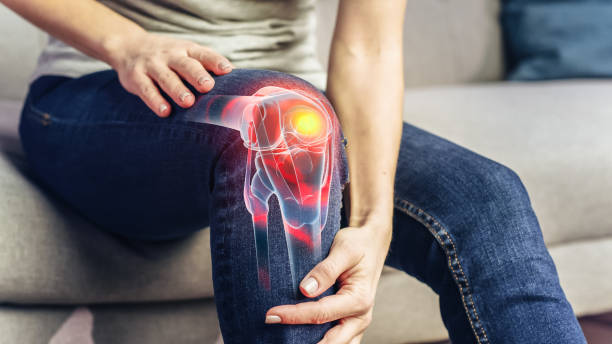Arthritis is the inflammation of the joint. It is a condition that causes pain, aching, swelling and stiffness of the joints (areas where your bones meet and move). It worsens with age and makes it difficult to move freely or stay active.
Arthritis usually occurs in the feet, hands, lower back, knees and hips, and the inflammation can affect the tendons and ligaments that surround the joint. It happens to people of all ages, including children, teenagers and adults, but it is very common in older people.
Types of Arthritis
There are over a hundred different types of arthritis, each with its various causes and symptoms. To better understand all the types, they have been categorised into different groups.
-
Inflammatory Arthritis
This is a damaging inflammation that isn’t due to an injury or infection. Although inflammation is a normal response to infections and injuries, this type is unhelpful and causes damage to joints, resulting in pain, swelling and stiffness. Types of inflammatory arthritis include psoriatic arthritis, reactive arthritis, rheumatoid arthritis, and ankylosing spondylitis.
-
Infectious Arthritis
Infectious arthritis is usually due to a bacteria, fungus or viral infection that enters the joint and causes inflammation. Causative organisms include salmonella, shigella, hepatitis C, chlamydia and gonorrhoea.
-
Connective Tissue Disease (CTD)
The connective tissues include ligaments, tendons and cartilage; they support, bind together or separate some body tissues and organs. However, CTD causes pain and inflammation in these areas. Examples of CTD include dermatomyositis, SLE or lupus, systemic sclerosis, and Sjogren’s.
-
Degenerative Arthritis
These are the type of arthritis that causes damage to the cartilage. The cartilages are tissues that cover the end of bones; they are smooth and slippery to help joints glide and move smoothly. However, degenerative arthritis can make cartilage become thinner and rougher.
-
Childhood Arthritis
The most common type of childhood arthritis is juvenile rheumatoid arthritis (JRA). Several types of childhood arthritis can result in permanent damage to the joints as there is no cure, but remission is possible.
-
Metabolic Arthritis
This type of arthritis results from a build-up of uric acid that forms needle-like crystals in the joint. This will result in a sudden spike of extreme joint pain and gout.
Causes of Arthritis
There is no specific cause of arthritis. Each type has a different cause and sometimes multiple causes. So here are the possible reasons why someone may develop arthritis.
- Immune system dysfunction.
- Genetic inheritance.
- Injury.
- Infection.
- Abnormal metabolism.
Symptoms of Arthritis
The symptoms of arthritis vary based on the cause and type, and they can appear gradually or suddenly. These symptoms may also come and go at intervals or persist over time. However, here are the four key signs of arthritis.
-
Stiffness
This is a very common symptom of arthritis. It usually happens upon waking up in the morning, after sitting for a long time, after an exercise, or it may be persistent.
-
Swelling
In certain types of arthritis, the skin on the affected area becomes red, warm to touch and swollen.
-
Pain
Pain is sometimes a constant part of arthritis, but it may go and come from time to time, or it may be persistent; it can also be felt in other parts of the body aside from the affected joint.
-
Difficulty Moving a Joint
Arthritis can make moving a joint or standing up from a chair difficult and painful.
Treatment of Arthritis
A wide range of medication and lifestyle strategies can help treat or manage arthritis, but the exact treatment depends on the type of arthritis.
Treatment options include:
- Medications like Disease-modifying Antirheumatic Drugs (DMARDs), analgesics, counterirritants, corticosteroids, Nonsteroidal Anti-inflammatory Drugs (NSAIDs), and biologics.
- Natural remedies.
- Physical therapy and exercise.
- Herbal medicine.
- Surgery: synovectomy, osteotomy, joint fusion and total joint replacement (TJR).



